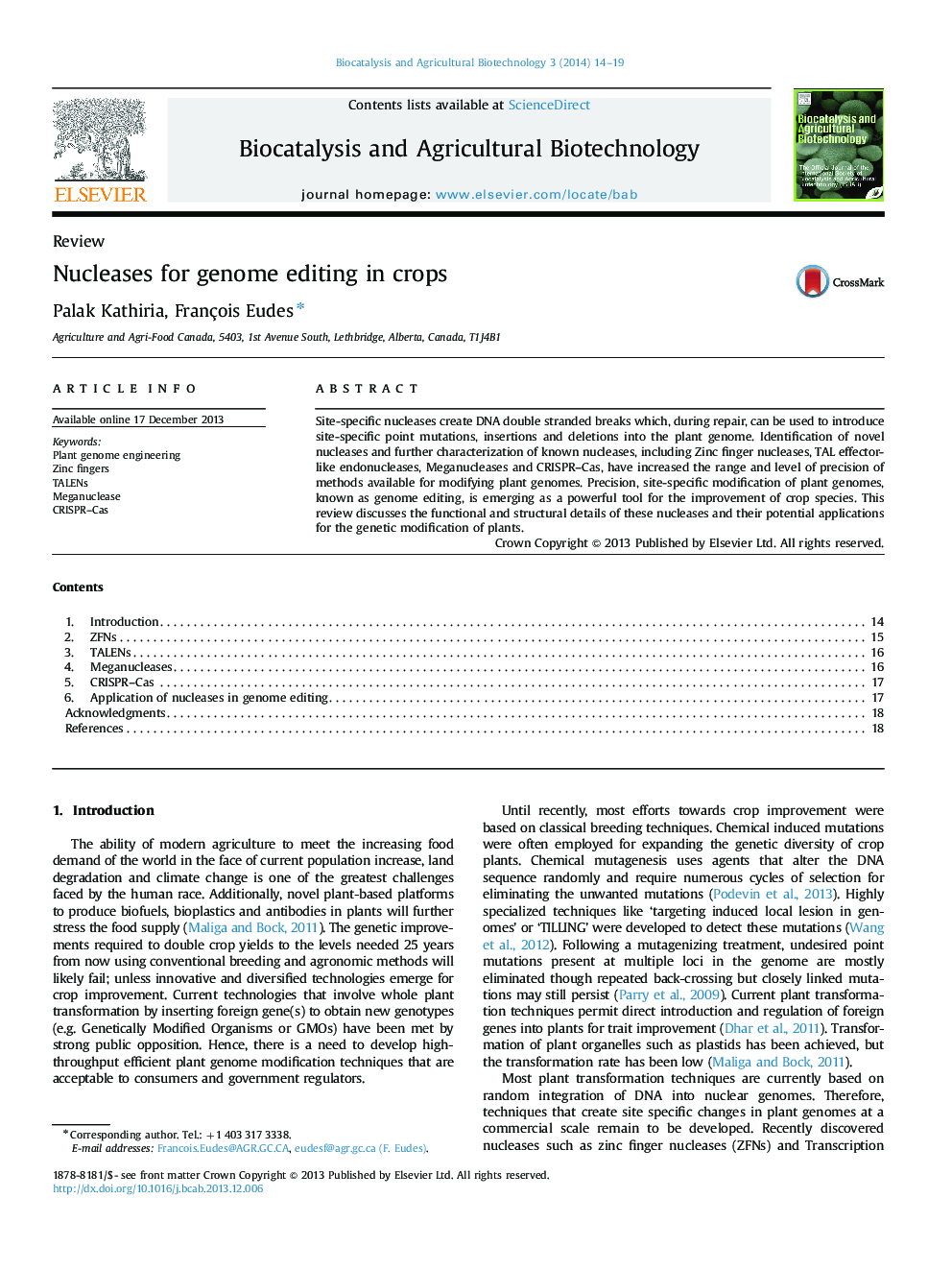| Article ID | Journal | Published Year | Pages | File Type |
|---|---|---|---|---|
| 10884457 | Biocatalysis and Agricultural Biotechnology | 2014 | 6 Pages |
Abstract
Site-specific nucleases create DNA double stranded breaks which, during repair, can be used to introduce site-specific point mutations, insertions and deletions into the plant genome. Identification of novel nucleases and further characterization of known nucleases, including Zinc finger nucleases, TAL effector-like endonucleases, Meganucleases and CRISPR-Cas, have increased the range and level of precision of methods available for modifying plant genomes. Precision, site-specific modification of plant genomes, known as genome editing, is emerging as a powerful tool for the improvement of crop species. This review discusses the functional and structural details of these nucleases and their potential applications for the genetic modification of plants.
Keywords
Related Topics
Life Sciences
Agricultural and Biological Sciences
Agricultural and Biological Sciences (General)
Authors
Palak Kathiria, François Eudes,
